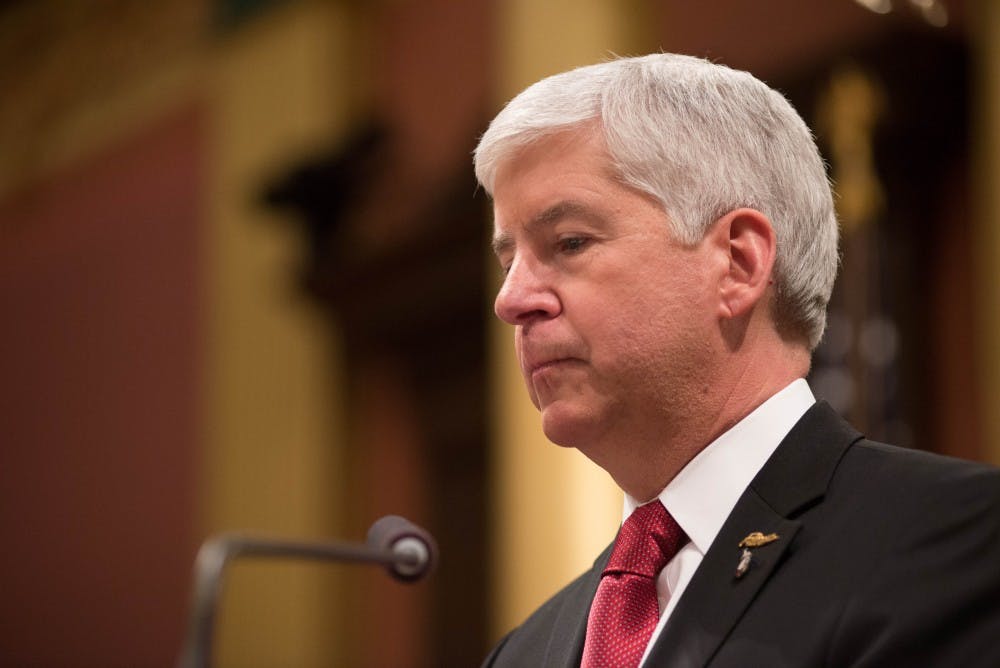Gov. Rick Snyder asked the Michigan Legislature to raise funding for higher education in the state by $61.2 million last week.
According to the official higher education budget narrative for this proposed increase in state appropriations Snyder plans for a 4.3 percent overall increase with “one-half of the increase in university operations funding is distributed across-the-board and one-half through the current performance formula.”
The clear-cut goal of this increase in appropriations “provides long-term planning stability to state universities,” as well as emphasizing certain “performance measures” of the universities.
These measures in the narrative include research expenditures, graduation rates and student performance.
A tuition increase cap will be set at 4.8 percent.
“Michigan’s universities play a vital role in Michigan’s future, and Gov. Snyder is continuing to increase the state’s investment in the schools and in their students,” press secretary to the governor Dave Murray told the Detroit Free Press.
The budget narrative shows MSU receiving a 3.9 percent increase funding.
While this statistic ranks in the middle of the pack in regards to percent increase in funding, MSU still has a commanding second place presence in terms of total state appropriations.
At a proposed approximately $268 million in-state funding, MSU would trail only the University of Michigan - Ann Arbor, who would receive close to $300 million. Combined, Michigan’s two largest universities would receive close to half of the proposed budget for public universities in the state.
Further, MSU would receive a separate check as a part of the planned increase in funding to extend and maintain MSU’s AgBioResearch.
The budget narrative also shows Snyder targeting an increase in funding for the financial aid budget.
“Total recommended funding for student financial aid is $107.5 million,” according to the narrative.
Additionally, $2 million will be added to the state’s Tuition Incentive Program, or TIP, with plans to raise that number to $8.5 million by the fiscal year of 2018 in order to aid students in low-income areas.
As a result of these proposed changes, many MSU officials in the Department of Education are excited to see higher education receive well-deserved funding.
Assistant professor Brendan Cantwell in MSU’s Department of Educational Administration said he sees Snyder’s budget proposal as an “appropriate return to funding higher education as the economy improves.”
While Michigan’s state appropriations to its public universities, as well as funding to financial aid services, aren’t as high as other states, the trend is certainly moving in the right direction, he said.
“A healthy higher education sector is essential to a healthy economy,” Cantwell said.
Cantwell said it will be interesting to see how Michigan’s in-state universities will respond to these changes, especially the cap on tuition increase.







